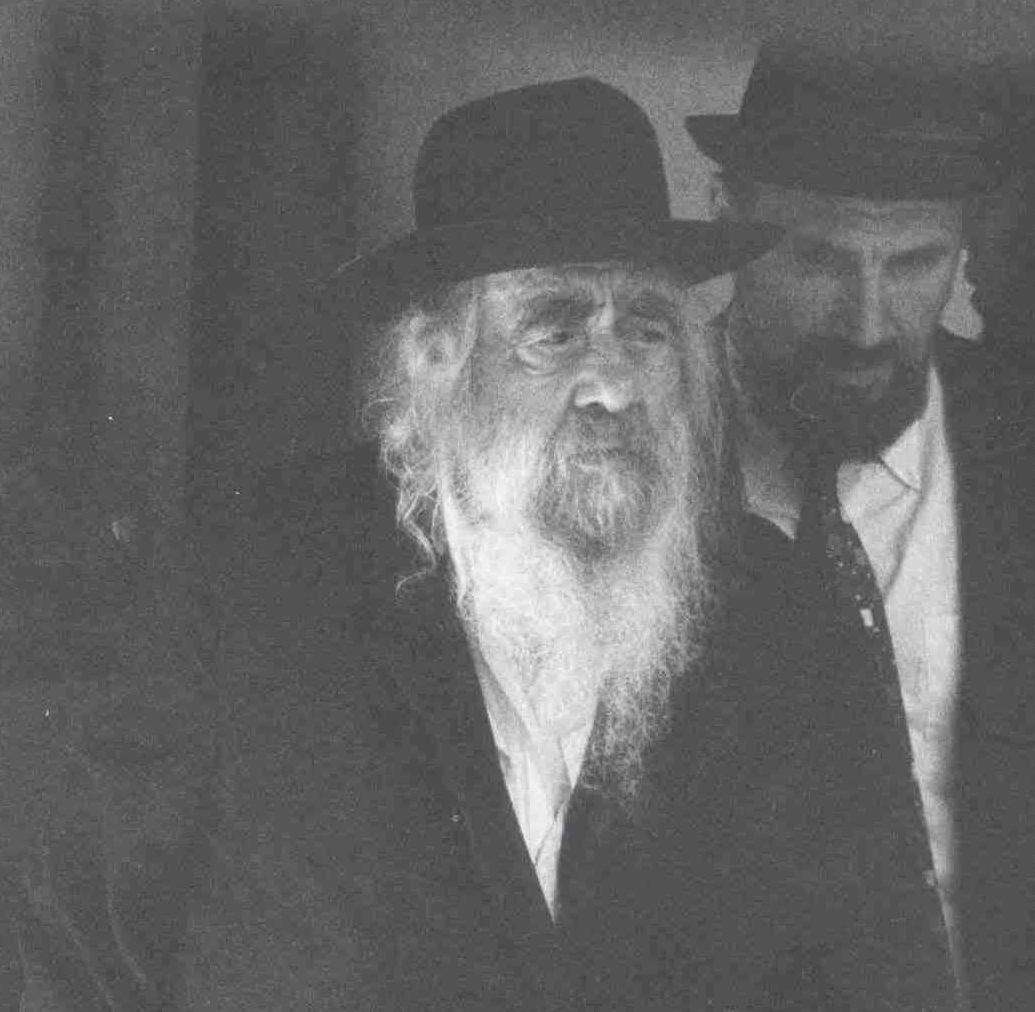The Steipler Gaon, HaRav Yaakov Yisroel Kanievsky

Part I
The power of faith which is radiated by Jewish leaders warms, like the sun, and can affect even those far removed from the source.
In this series of articles, published in 1992, Rabbi Ben David scans the impressions and expressions of gedolei Yisroel in reaction to adverse situations involving themselves or others. Their clearcut outlook and approach is reflected. What did they say? How did they react? Why did they not sink into the depths of despair? From where did they draw the strength to continue?
HaRav HaGaon R' Shach frequently quoted the explanation offered by R' Isser Zalman Meltzer on the words in Tehillim, "Even though I walk in the valley of the shadow of death I will fear no evil, for You are with me. Your rod and Your staff, they shall comfort me," as follows:
To what can this be compared? To a father who was traveling with his son through a thick forest. Before entering, the father cautioned his son strictly not to wander off for even a moment lest he endanger his life.
At first the child heeded his father's warning and held on tightly to his father's hand. But after a while, something caught his attention. He let go and went off to explore. Not realizing that his son was absent, the father continued on. Soon the son tired and wished to return to his father, but could not find him. The more he floundered about in the thicket, the more confused he became and the further he strayed from his father. Night fell and darkness swallowed everything up. The night creatures ventured out of their lairs: owls, wolves and bears, each emitting its peculiar and frightening sounds. The boy was terrified.
Suddenly, the boy felt a sharp pain on his cheek. It was a stinging slap. Before screaming his protest, he looked up and saw his father. "Oh, father! Father!" he cried, forgetting his pain. "How happy I am to have found you!" Indeed, he welcomed his father's punishment, for it meant that his father had been looking for him and still cared.
Similarly, a Jew in distress is not afraid of evil, for he realizes that this is the chastising rod of Hashem, the Father Who is concerned for his welfare. The very punishing rod is his consolation that Hashem still cares.
When the Divrei Chaim returned from Sanz after the funeral of his beloved son, Arye Leibush'l, who passed away at the age of seven and whose funeral took place even before shacharis, he said:
"A man is walking innocently along when he suddenly feels a forceful blow on his back. Turning around to identify his attacker, he is surprised to see his best friend thumping him affectionately upon the back. Even if he first meant to scold the striker, he now accepts the blows with a smile and is veritably happy at his friend's exuberant show of affection. I, too [said the Divrei Chaim], have received a stunning blow. But when I looked around to see who struck it, I said to myself: why, it is none other than Hashem, Himself, Whom I love so much! There is no question about my accepting it with love and joy."
"I Paid No Attention to Worldly Problems"
R' Moshe Mordechai Schlesinger told the following anecdote in his eulogy on R' Yisroel Yaakov Kanievsky, the Steipler Gaon:
"My master (the Steipler) once told a person who was in need of fortification, encouragement and comfort not to concern himself overly with problems that have to do with worldly matters. `I, myself,' he said, `would have undoubtedly remained an ignoramus, had I taken to heart those matters that preoccupy a person's attention. Do you know what troubles I suffered? For years, I lived in abject poverty. We had no more than black bread to eat on Shabbos, to say nothing of proper clothing. In addition, I had considerable anguish in raising my children. And so, if you think you have troubles, let me tell you that my tzaar gidul bonim alone was great enough to be parceled out to a hundred people!' (He went into some details and then continued:)
"Hashem providing me with a son-in-law who was taken from us, leaving eight destitute orphans behind and a baggage of medical problems. Had I taken the time off to deal with these problems at the expense of Torah study, I would never had learned a single page! But Hashem was kind to me, perhaps because I studied mussar, perhaps in the merit of the Torah I learned in my youth, and I ignored all my problems.
"I regarded all my problems in the light of the Seforno's explanation on the verse, `Even though I walk in the valley of the shadow of death I will fear no evil, for You are with me. Your rod and Your staff, they shall comfort me,' as follows: King David said: `I know that it is You Who smites me. Therefore, Your rod - with which You struck me in the past - and Your staff, upon which I leaned for support - strengthen me with the knowledge that no matter how debilitating the blow, it is always followed by the supporting staff. This is my comfort and reassurance in the face of each succeeding adversity, it is the source of my faith and hope that this time, too, Your staff will be waiting to console and bolster me.'
"`There is no other resort but to ignore worldly afflictions,' he concluded, comforting the person before him. The latter left him, a new man."




